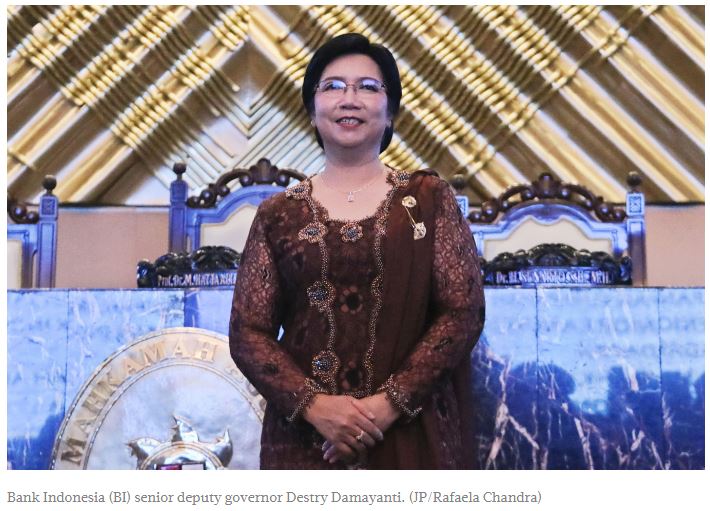Indonesia: BI sees weak consumer demand contributing to low inflation
Weak consumer demand is contributing to a decades-low inflation rate in Indonesia, as the central bank steps up efforts to control inflation rates at the same time, a Bank Indonesia (BI) senior official says.
BI senior deputy governor Destry Damayanti said Indonesia’s low inflation rate in 2019, which at 2.72 percent is the lowest in about two decades, was both structural and temporary.
“We conducted many assessments on whether the low inflation rate is structurally caused by the fact that we’re entering into a low inflation era or it’s temporary by nature because the demand side is weak. The conclusion that it’s a combination of the two,” Destry told attendants of the 2020 CNBC Indonesia Economic Outlook in Jakarta on Wednesday.
“On the one hand, our demand side is low. Household spending reached the lowest yet in 2019, below 5 percent, at 4.97 percent.”
According to Statistics Indonesia (BPS) data, the country’s domestic spending, which accounts for more than half of its economy, grew at 4.97 percent in the fourth quarter of 2019. Its gross domestic product (GDP) grew at a similar pace in the same period, the weakest in three years.
“But there are other issues that make us more confident that going forward, we can maintain inflation at lower levels,” Destry said.
She added that there were three reasons underlying BI’s confidence over Indonesia’s economic outlook: the effectiveness of the inflation monitoring team, a more transparent economic system and the influence of a digital economy.
Aside from monitoring the sources of inflation, the team also educates citizens on how they can help maintain inflation levels.
“BI [cooperates] with the inflation control team to educate citizens to plant onions and chilies,” she added, explaining that the two had been the driving factors behind Indonesia’s inflation.
The existence of modern marts and supermarkets has also contributed to creating a more transparent economic system due to their standardized pricing, Destry noted, adding that conventional markets ended up following that pricing standard as well.
In addition, the growing digital economy has helped create better transparency.
“People can compare one price to another, leading to optimal, efficient pricing,” Destry said.
BI has targeted inflation to reach between 2 percent and 4 percent this year. With inflation in check, the central bank cut its benchmark interest rate by 25 basis points (bps) this month after a 100-bps rate cut in 2019 to help drive economic growth.
“Bank Indonesia will maintain an accommodative macroprudential policy stance in order to stimulate bank lending and support economic growth,” Bank Mandiri chief economist Andry Asmoro wrote in a recent note. (ydp)
Source: https://www.thejakartapost.com/news/2020/02/26/bi-sees-weak-consumer-demand-contributing-to-low-inflation.html


 Thailand
Thailand




